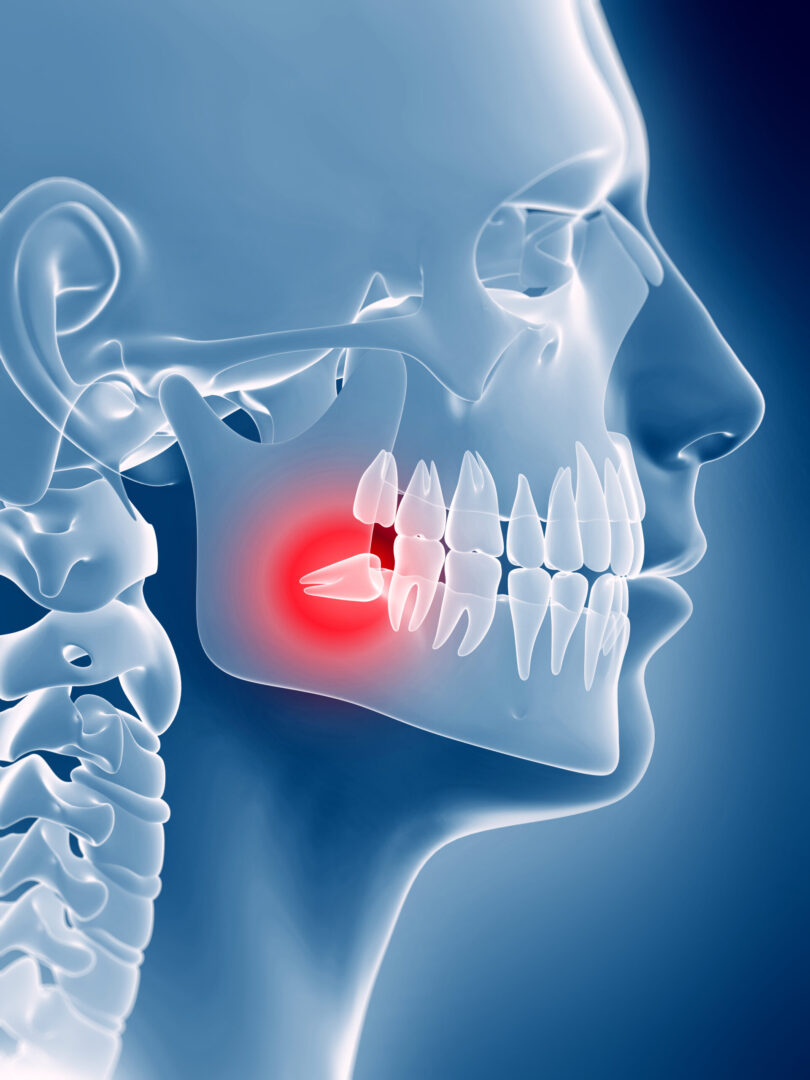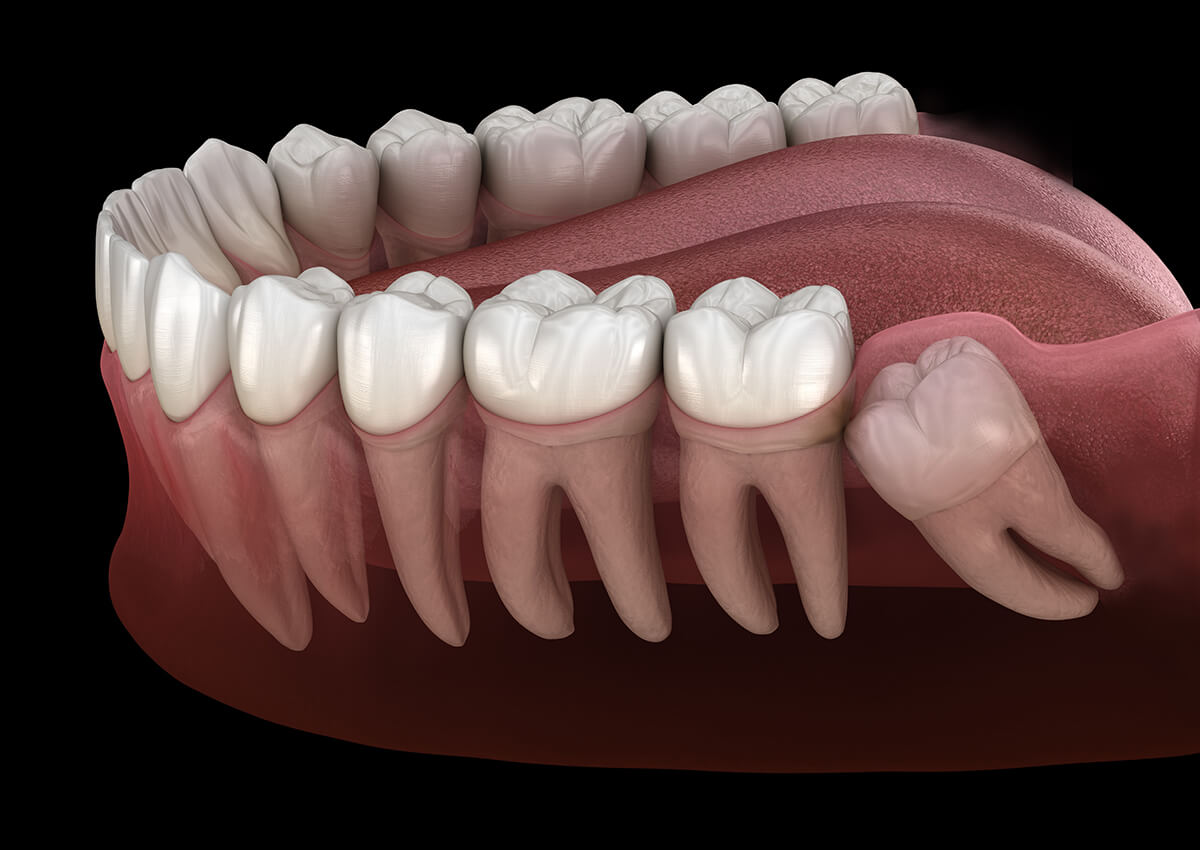Dental Center
Dental Center
Blog Article
Discovering Various Sedation Options for a Comfy Knowledge Teeth Removal Experience

Regional Anesthetic
Local anesthetic is a generally used approach for numbing particular locations of the mouth during knowledge teeth extraction treatments. By providing a local anesthetic, such as lidocaine, a dental practitioner can guarantee that the client continues to be comfy and pain-free throughout the extraction procedure.
Among the primary advantages of regional anesthetic is its targeted numbing result, which means that just the certain location being dealt with is affected. This localized approach lessens the risk of systemic negative effects and enables a quicker recovery post-procedure. wisdom teeth removal aspendale. Additionally, regional anesthesia is taken into consideration to be a regular and secure technique in dental care, with minimal threats included when provided by a trained specialist
Laughing Gas

Additionally, laughing gas is understood for its fast recuperation time. When the mask is eliminated, the impacts of the gas diminish quickly, permitting clients to resume their normal activities without remaining sedative effects. This makes nitrous oxide a hassle-free choice for those that need to drive themselves home after the oral consultation. Nitrous oxide is appropriate for people of all ages, making it a functional sedation alternative for knowledge teeth extractions and various other oral procedures.
Oral Sedation

Among the primary benefits of oral sedation is its simplicity of management. Unlike intravenous sedation, oral sedation does not call for shots or needles, making it a more comfy option for people with a worry of needles. Additionally, oral sedation is considered reliable and risk-free when carried out by qualified dental experts. It is critical for individuals to comply with pre-operative directions supplied by their dental practitioner, such as refraining from eating or drinking before the procedure to make sure the sedative drug functions as intended.
IV Sedation
Carried out intravenously by qualified doctor, IV sedation is an effective technique utilized to generate a controlled state of deep relaxation and unfamiliarity throughout oral procedures. Unlike dental sedation, which can be unpredictable in its effects, IV sedation permits precise control over the degree of sedation, making it an optimal selection for intricate treatments like knowledge teeth extractions.
During IV sedation, a sedative medication is provided straight right into the blood stream through a blood vessel, allowing it to work promptly and efficiently. This technique guarantees that the patient remains comfortable and not aware of the treatment while still preserving crucial features such as breathing and heart price.
Among the key advantages of IV sedation is its capability to provide a much deeper level next page of sedation compared to other approaches, making it especially suitable for individuals with high levels of anxiety or those undergoing extensive oral work. Additionally, the results of IV sedation typically wear off progressively after the treatment, lowering the chance of grogginess or remaining negative effects. On the whole, IV sedation offers a secure and effective option for guaranteeing a comfortable and worry-free experience during wisdom teeth removal.
General Anesthesia
Having discussed the advantages of IV sedation for content knowledge teeth removal, the application of basic anesthetic provides an alternate choice for individuals calling for a deeper degree of unconsciousness during dental procedures. General anesthetic induces a regulated state of unfamiliarity, making sure the person really feels no discomfort or discomfort during the extraction process. This technique is particularly valuable for individuals with serious oral stress and anxiety, complex medical needs, or those going through several extractions concurrently.
General anesthetic is carried out by an experienced anesthesiologist who closely checks the patient's essential indications throughout the treatment. It includes making use of intravenous medications or inhaled gases to cause a state of unfamiliarity. While under basic anesthetic, the patient will certainly not be conscious of the surgical treatment, experience any kind of discomfort, or have any recollection of the procedure afterward.
Although general anesthesia is secure when administered by certified professionals, additional reading it brings a slightly greater danger compared to various other sedation alternatives. wisdom teeth removal aspendale. People thinking about basic anesthesia for wisdom teeth removal need to review the prospective dangers and benefits with their dental practitioner or dental specialist to make an educated decision based upon their specific demands and case history
Conclusion
In final thought, different sedation choices are available to make sure a comfy knowledge teeth removal experience. Oral sedation and IV sedation deal much deeper levels of leisure, depending on the patient's demands.
Nitrous oxide is suitable for individuals of all ages, making it a versatile sedation choice for knowledge teeth extractions and other dental treatments.
Unlike intravenous sedation, dental sedation does not call for needles or injections, making it a much more comfy option for individuals with a fear of needles.One of the primary benefits of IV sedation is its capability to offer a deeper level of sedation compared to other methods, making it especially suitable for clients with high degrees of anxiety or those going through substantial dental work.Having actually talked about the benefits of IV sedation for knowledge teeth removal, the application of basic anesthetic offers a different option for individuals calling for a much deeper degree of unfamiliarity during dental treatments. Oral sedation and IV sedation offer much deeper levels of leisure, depending on the person's needs.
Report this page